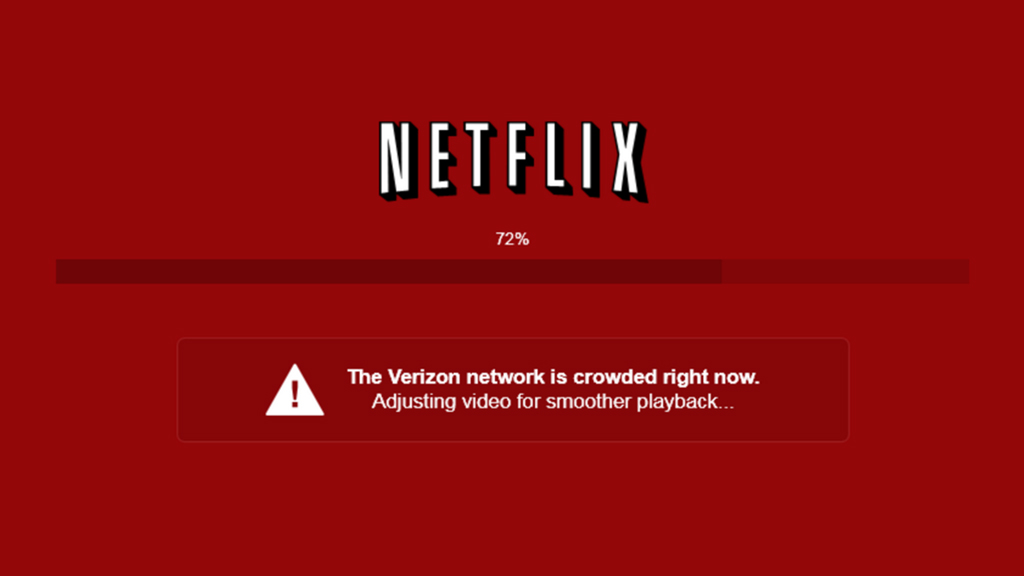
After a war of words and one cease and desist order, Netflix is backing down from its decision to openly blame Verizon and other internet service providers for poor streaming speeds.
The video streaming service rolled out its monthly ISP Speed Index report and along with ranking internet providers, the company added a small message promising to stop reporting network errors by June 16.
In a blog post, Netflix wrote that the error messages were just a small test already scheduled to end by the middle of the month, an assertion we're suspicious of.
As part of the company's larger transparency campaign, Netflix says it will continue to evaluate whether or not expand the program more broadly.
Netflix argues on
Although it didn't directly address Verizon's cease and desist order and arguments calling it the real culprit behind poor streaming service, Netflix defended itself by bouncing blame back again to internet providers.
"Some broadband providers argue that our actions, and not theirs, are causing a degraded Netflix experience," blog post read. "Netflix does not purposely select congested routes."
Instead, Netflix says the problem crops up when broadband providers don't provide enough capacity to accommodate the traffic - whether it be a steaming video or a loading webpage - their customer has requested.
Sign up for breaking news, reviews, opinion, top tech deals, and more.
Curiously in its ISP Speed Index, Netflix says that both Verizon's FiOS and DSL services have slowed despite a deal allowing the steaming service to pipe its traffic directly through Verizon's network.
In the monthly streaming report, Verizon's FiOS speed slid from an average of 1.99Mbps in April to 1.9Mbps in May. Following a similar contract with Comcast, Netflix reported the cable provider actually had a significant speed boost 1.68Mbps to 2.5Mbps.
Fanning the net neutrality flames
The web media provider continued to argue that ISPs are planning to do away with net neutrality by erecting "toll booths." The company argues that larger US-based ISPs stymie internet speeds for any users who don't pay their way for "fast lanes".
"In this way, ISPs are double-dipping by getting both their subscribers and Internet content providers to pay for access to each other," Netflix continued. "We believe these ISP tolls are wrong because they raise costs, stifle innovation and harm consumers."
- Now that the Verizon vs Netflix brouhaha is over, check out the games from E3 2014

Kevin Lee was a former computing reporter at TechRadar. Kevin is now the SEO Updates Editor at IGN based in New York. He handles all of the best of tech buying guides while also dipping his hand in the entertainment and games evergreen content. Kevin has over eight years of experience in the tech and games publications with previous bylines at Polygon, PC World, and more. Outside of work, Kevin is major movie buff of cult and bad films. He also regularly plays flight & space sim and racing games. IRL he's a fan of archery, axe throwing, and board games.